Filter by
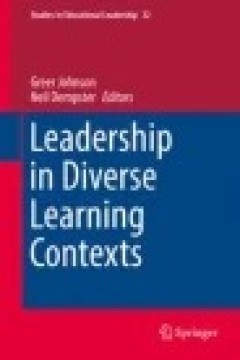
Leadership in Diverse Learning Contexts
This book presents the outcomes of research and practical endeavour in some of the diverse contexts in which learning takes place: classrooms, schools, professional development settings, community projects and service sector agencies. It invites the reader to engage with two related questions of contemporary concern in the leadership field: "What can we learn about the important influence o…
- Edition
- -
- ISBN/ISSN
- 978-3-319-28302-9
- Collation
- -
- Series Title
- -
- Call Number
- -
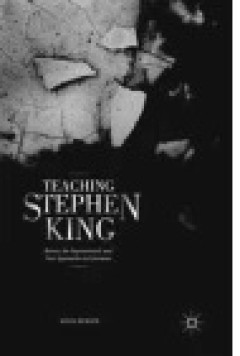
Teaching Stephen King
"Teaching Stephen King is a comprehensive analysis of many of King's works, particularly his recent compositions, and helps to bridge the gaps in scholarship that exist regarding the work of the 'Master of Horror.' Indeed, Dr. Burger has ventured into new territories and brings students, teachers, and scholars into original, well-researched, and exciting avenues of discussion. In short, this bo…
- Edition
- -
- ISBN/ISSN
- 978-1-137-48391-1
- Collation
- IX, 211
- Series Title
- -
- Call Number
- -
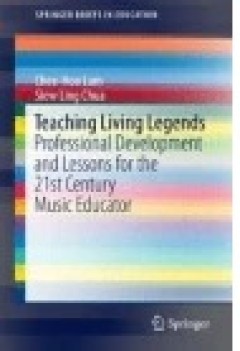
Teaching Living Legends
This book traces the research on the design, implementation and outcomes of a professional development program for in-service primary and secondary school teachers aimed at enhancing their understanding of living music traditions in Singapore and how these could be taught in the 21st century music classroom. It proposes a professional development framework comprising the areas of Pedagogy, Prac…
- Edition
- -
- ISBN/ISSN
- 978-981-10-1482-6
- Collation
- XI, 115
- Series Title
- SpringerBriefs in Education
- Call Number
- -
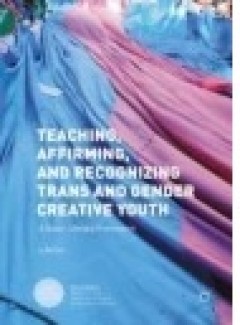
Teaching, Affirming, And Recognizing Trans And Gender Creative Youth
Winner of the 2017 AERA Division K (Teaching and Teacher Education) Exemplary Research Award This book draws upon a queer literacy framework to map out examples for teaching literacy across pre-K-12 schooling. To date, there are no comprehensive Pre-K-12 texts for literacy teacher educators and theorists to use to show successful models of how practicing classroom teachers affirm differentia…
- Edition
- -
- ISBN/ISSN
- 978-1-137-56766-6
- Collation
- XXIII, 323
- Series Title
- Queer Studies and Education
- Call Number
- -
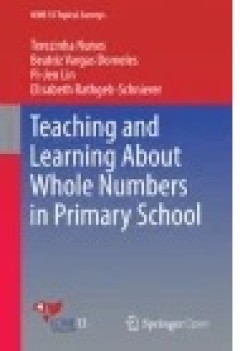
Teaching And Learning About Whole Numbers In Primary School
This book offers a theory for the analysis of how children learn and are taught about whole numbers. Two meanings of numbers are distinguished – the analytical meaning, defined by the number system, and the representational meaning, identified by the use of numbers as conventional signs that stand for quantities. This framework makes it possible to compare different approaches to making numbe…
- Edition
- -
- ISBN/ISSN
- 978-3-319-45113-8
- Collation
- Number of Pages IX, 50
- Series Title
- ICME-13 Topical Surveys
- Call Number
- -
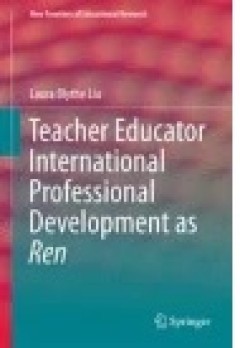
Teacher Educator International Professional Development as Ren
Teacher-educator international professional development involves personal and professional, research- and practice-oriented, and pragmatic and aesthetic growth. This text encourages teacher educators to explore this work as Ren, or benevolent human beings, in cultivating global professional communities. As faculties engage in Ren as a vital 21st century form of development, new insights may eme…
- Edition
- -
- ISBN/ISSN
- 978-3-662-46971-2
- Collation
- XIII, 120
- Series Title
- New Frontiers of Educational Research
- Call Number
- -

Teacher Education for High Poverty Schools
This volume captures the innovative, theory-based, and grounded work being done by established scholars who are interrogating how teacher education can prepare teachers to work in challenging and diverse high-poverty settings. It offers articles from the US, Australia, Canada, the UK and Chile by some of the most significant scholars in the field. Internationally, research suggests that effecti…
- Edition
- -
- ISBN/ISSN
- 978-3-319-22059-8
- Collation
- VIII, 251
- Series Title
- Education, Equity, Economy
- Call Number
- -
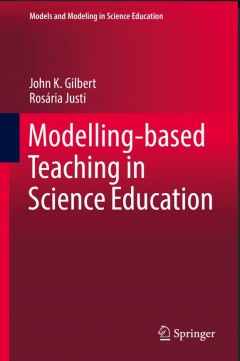
Modelling-based Teaching in Science Education
This book argues that modelling should be a component of all school curricula that aspire to provide ‘authentic science education for all’. The literature on modelling is reviewed and a ‘model of modelling’ is proposed. The conditions for the successful implementation of the ‘model of modelling’ in classrooms are explored and illustrated from practical experience. The roles of argum…
- Edition
- 1
- ISBN/ISSN
- 978-3-319-29038-6
- Collation
- XVIII, 264
- Series Title
- Models and Modeling in Science Education
- Call Number
- -
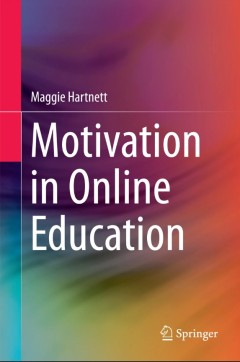
Motivation in Online Education
This work explores and explicates learner motivation in online learning environments. More specifically, it uses a case-study approach to examine undergraduate students’ motivation within two formal and separate online learning contexts. In doing so, it recognizes the mutually constitutive relationship of the learner and the learning environment in relation to motivation. This is distinctive …
- Edition
- 1
- ISBN/ISSN
- 978-981-10-0698-2
- Collation
- XXIII, 134
- Series Title
- -
- Call Number
- -
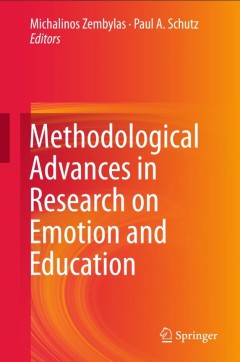
Methodological Advances in Research on Emotion and Education
This volume presents different conceptual and theoretical frameworks as well as research methods that have helped educational researchers to study emotions. It includes innovative approaches that push the methodological boundaries that have served educational researchers until now and proposes new ways of researching emotions in educational contexts. In particular, this edited volume provides a…
- Edition
- 1
- ISBN/ISSN
- 978-3-319-29047-8
- Collation
- XIV, 299
- Series Title
- -
- Call Number
- -
 Computer Science, Information & General Works
Computer Science, Information & General Works  Philosophy & Psychology
Philosophy & Psychology  Religion
Religion  Social Sciences
Social Sciences  Language
Language  Pure Science
Pure Science  Applied Sciences
Applied Sciences  Art & Recreation
Art & Recreation  Literature
Literature  History & Geography
History & Geography